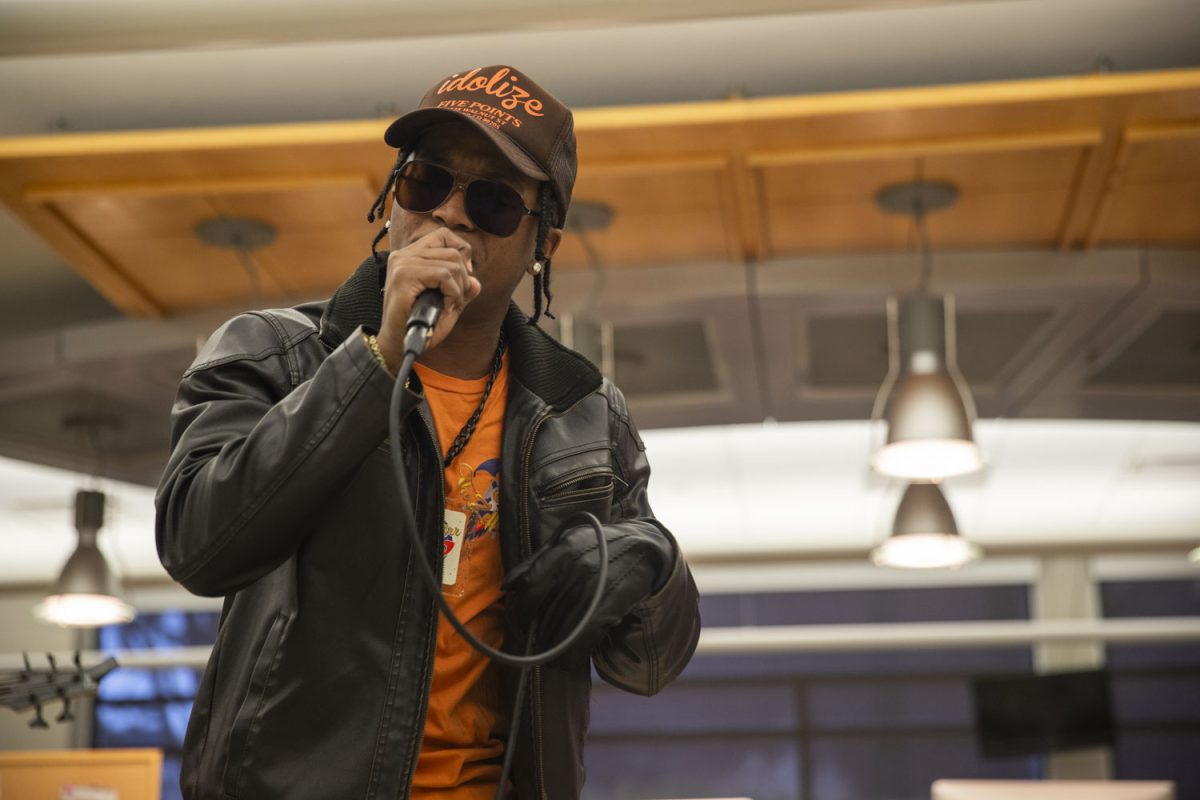Literature has had a long-standing relationship with music. In Iowa City, writers and artists carry on the city’s literary heritage along with its long composition history.
MusicIC, a summer chamber-music festival, will bring in a new soprano and string quartet by composer David Gompper set to Marvin Bell’s new poem, “Variations on a Sonic Imagination,” today.
Soon after Gompper arrived at the University of Iowa for a composition teaching job in 1991, he called the Iowa Writers’ Workshop and asked for a poet to work with. The Writers’ Workshop gave him Marvin Bell, a longtime faculty member at the Workshop, at which he was the Flannery O’Connor Professor of Letters. The two have collaborated ever since.
Bell said the relationship between music and poetry is close.
“Of the written arts, poetry, in particular, lives on sound and rhythm,” said Bell, who taught poetry at the Workshop for more than four decades. “And music always wins.”
“I have like two hours, three hours of music [set on Bell’s] poetry,” Gompper said.
Bell said that the four-movement piece to be presented today was commissioned by MusicIC. Gompper told The Daily Iowan that it is about the singer being the song itself — that she cannot be separated from the music.
“When I was commissioned to write a text for MusicIC, I asked the soprano, Tony Arnold, what she would like to sing about,” Bell wrote in an email. “She replied, ‘Narrative is not the most appealing thing to me, but fleeting images, compilations of innuendoes, notions that point toward an idea, all things ephemeral and unnamable — these are things I am curious about. These and the feeling of falling, the moment of transition from sleep to waking (and its inverse), watching words fall out of my mouth without knowing what word comes next, sonic imagination.’
“The first thing I thought was, let’s get the singer’s ideas instead of treating her like a hired gun.”
“The poets were from other planets, but the composers were from other galaxies. We’d stage a concert of the best work at the end of the term,” he said. “It was a hoot, and some terrific works came out of it.”
With this new piece, however, Gompper said it came out easily, because Bell and he have worked with each other for moer than 20 years.
“He writes about space and singing, [and] I just imagine,” Gompper said. “I can’t articulate it. There are some music effects what would reflect the words themselves. I’m making the string quartet reflect how we would want to respond to the poem through the music.”
Besides its writing history, he said, the UI has a unique history of composition — it is one of the first universities to offer a doctorate in music composition in the United States. What the artists and writers are doing, he said, is to keep the tradition alive.
“So if you have something that has a relationship between who groups of people, you want to keep it alive,” Gompper said. “ It helps to identify Iowa City as separate from Madison and Champaign/Urbana.”
Tricia Park, the artistic director and cofounder of MusicIC, whose goal is to enhance the connection between literature and music, has recognized the history and has wanted to carry the tradition on.
She said the hope of the festival is to give people who normally would not go to a classical music concert an opportunity to appreciate the music. She said she finds the college-town atmosphere of Iowa City creates a good audience for music.
“I think one of the things that makes Iowa City wonderful is the fact that we have very highly educated population,” she said. “And there is a uniquely well-established and knowledgeable fan base for classical music and for chamber music in particular.”
Returning this summer for its third season, MusicIC expects around 250 people from all walks to come to its four free concerts.
“We’ve been happy to see people who we normally don’t expect to see, everybody from very young people in their 20s, college students, and young professionals all the way up through retirees, ” Park said. “So we think we’re really hitting a nerve and serving the community in a very positive and forward-thinking way.”
What: MusicIC: Music for Soprano and String Quartet in a world première






